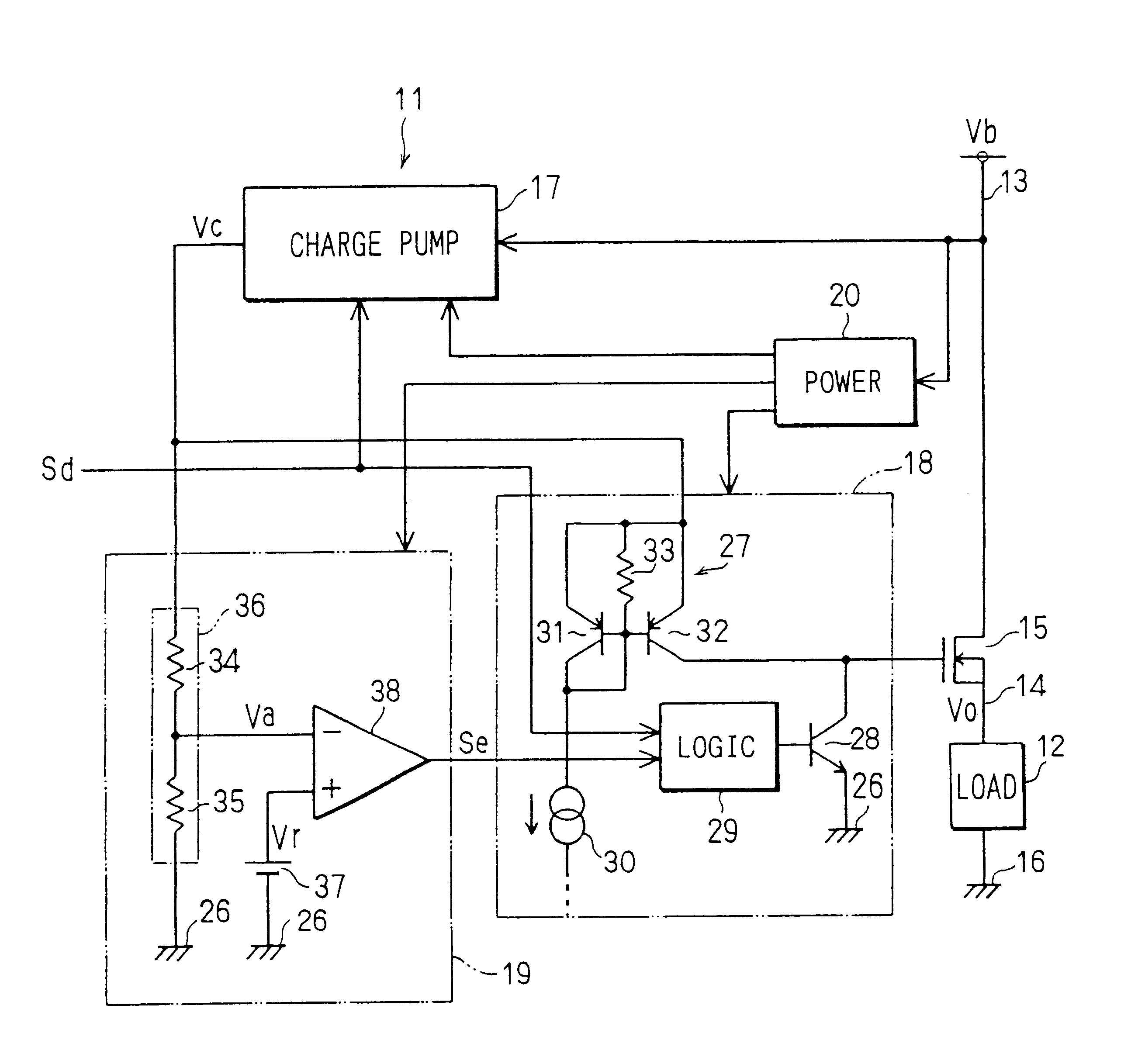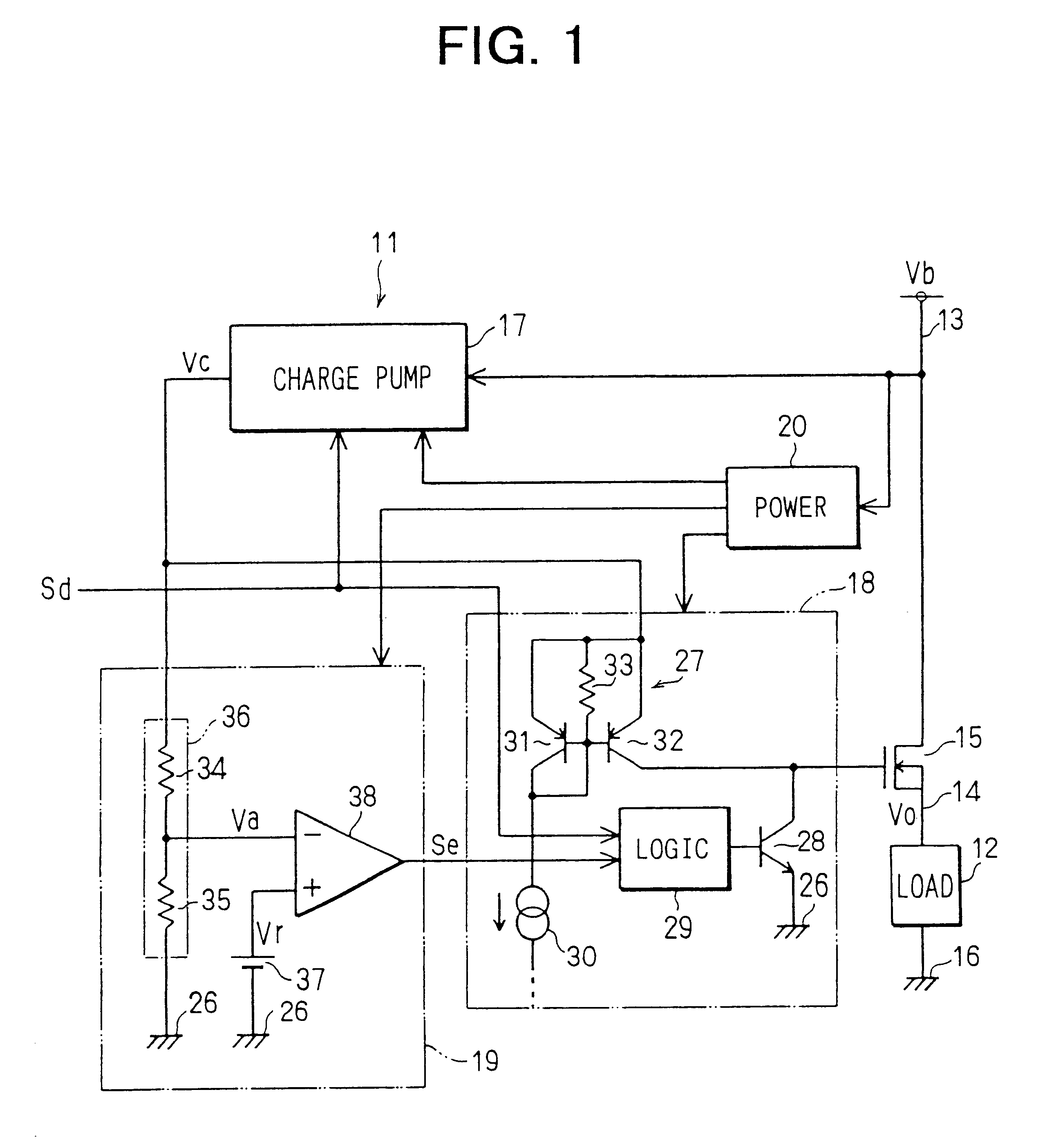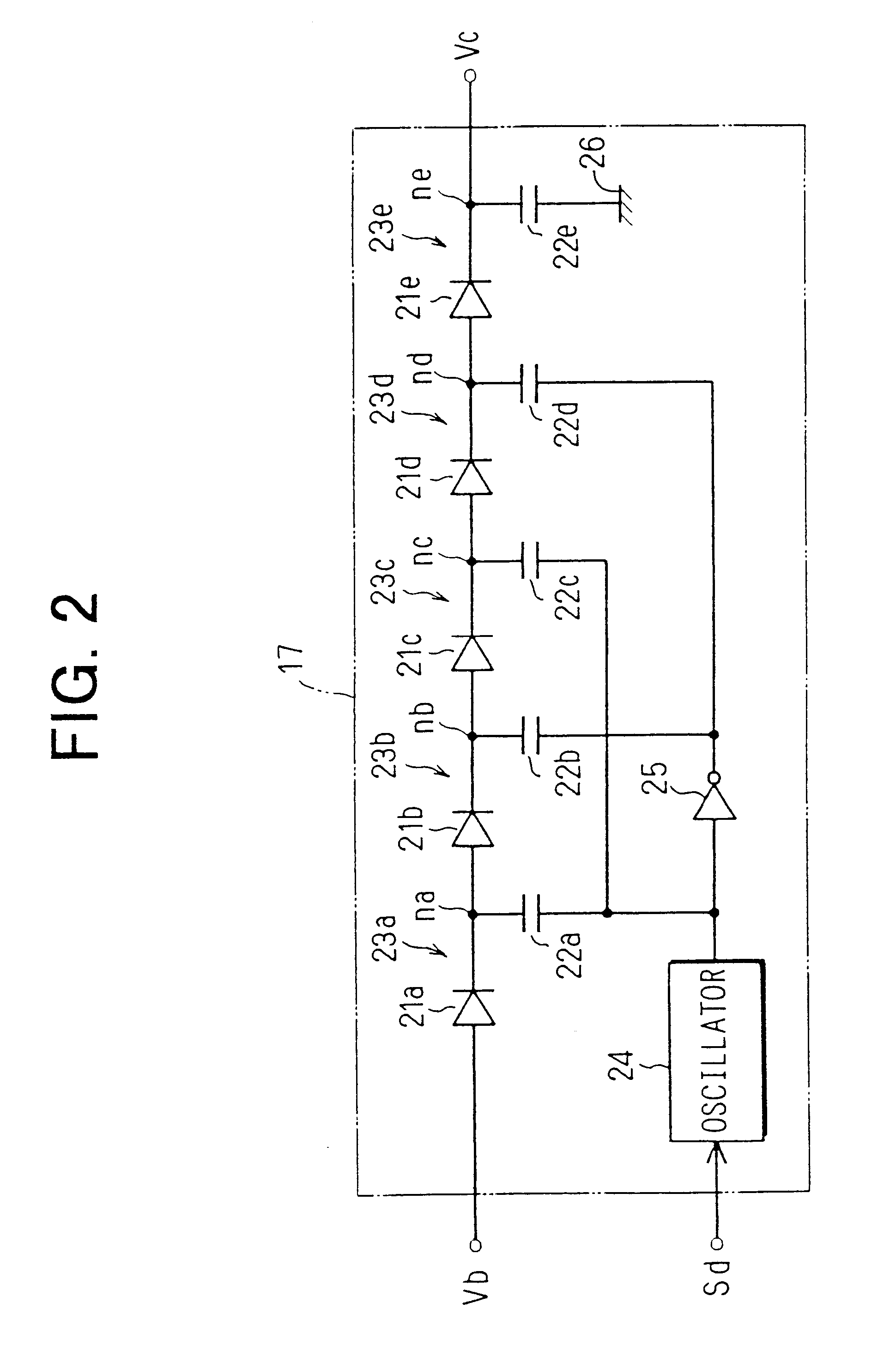Load drive circuit having low voltage detector
a low-voltage detector and drive circuit technology, applied in the direction of contact mechanisms, pulse techniques, instruments, etc., can solve the problems of increased cost and large parts, noise generation, and light turning on and off,
- Summary
- Abstract
- Description
- Claims
- Application Information
AI Technical Summary
Benefits of technology
Problems solved by technology
Method used
Image
Examples
third embodiment
A fourth embodiment adding a change to the third embodiment will next be explained with reference to FIGS. 8 and 9. In FIG. 8 showing the electric construction of a load drive circuit, the same constructional portions as FIG. 6 are designated by the same reference numerals, and different constructional portions will be explained here.
The load drive circuit 54 shown in FIG. 8 differs from the load drive circuit 48 shown in FIG. 6 in the construction of a charge pump circuit. The charge pump circuit 55 of the load drive circuit 54 is constructed by a booster circuit 55a having the same construction as the charge pump circuit 17 shown in the first to third embodiments, and a control circuit 55b for controlling a voltage raising operation of this booster circuit 55a.
The control circuit 55b is constructed by a detecting circuit of the battery voltage Vb, a reference voltage generating circuit, and a comparator (which are not shown in the drawings). The reference voltage generating circui...
first embodiment
At this time, as explained in the first embodiment, a phenomenon of temporarily jumping down the voltage (battery voltage Vb) of the power line 13 is generated by a sudden increase in a load electric current. The battery voltage Vb becomes a state lower than the threshold value Vh for a time from this time to a time t23 so that the booster circuit 55a stops the voltage raising operation and the raising voltage Vc is therefore reduced. However, the booster circuit 55a accumulates electric charges to its voltage raising capacitors 22a to 22e, and it is prevented by diodes 21a to 21e that the electric charges reversely flow to an input side. Accordingly, the raising voltage Vc is not suddenly reduced, but is gradually reduced.
Further, the threshold value Vh is set to be higher than the threshold value Vd. Accordingly, even when the raising voltage Vc (detecting voltage Va) is reduced, this raising voltage is not immediately reduced until its threshold value Vt (reference voltage Vr). T...
embodiment modes
(Other Embodiment Modes)
The MOSFET 15 is used as a switch circuit (switching element), but an IGBT, a bipolar transistor, or the like may be also used instead of the MOSFET. Further, the switch circuit is not limited to a semiconductor switching element, but a relay switch turned on and off by using e.g., the raising voltage Vc may be also used as the switch circuit.
Power source connected to the power line 13 is not limited to the battery. Further, the charge pump circuit 17 (booster circuit 55a) is not limited to the circuit construction shown in FIG. 2, but another circuit construction may be also used if this circuit is constructed by a diode and a capacitor for preventing the back flow of electric charges. Further, the charge pump circuits 17, 55 may also perform the voltage raising operation at any time irrespective of the voltage level of the drive command signal Sd.
With respect to the series circuit 44 in the low voltage detecting circuits 40, 49, each series connecting numbe...
PUM
 Login to View More
Login to View More Abstract
Description
Claims
Application Information
 Login to View More
Login to View More - R&D
- Intellectual Property
- Life Sciences
- Materials
- Tech Scout
- Unparalleled Data Quality
- Higher Quality Content
- 60% Fewer Hallucinations
Browse by: Latest US Patents, China's latest patents, Technical Efficacy Thesaurus, Application Domain, Technology Topic, Popular Technical Reports.
© 2025 PatSnap. All rights reserved.Legal|Privacy policy|Modern Slavery Act Transparency Statement|Sitemap|About US| Contact US: help@patsnap.com



